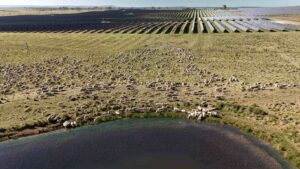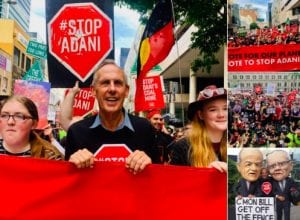For the past 18 months we have wondered if there are any moderates or small “l” liberals left in Australia’s ruling Coalition. Many of its members have privately wondered the same thing. We may be about to find out.
In so many ways, Tony Abbott’s decision on Monday to award an Australia knighthood to a 93-old-year British prince – and ignoring the pretensions of any number of deserving Australians – tells us pretty much everything we need to know about this Coalition government.

Firstly, we have learned that this is a government that is ruled by a small cabal in the prime minister’s office, and there is little or no consultation with colleagues; hence Abbott’s decision to make yet another “captain’s call.”
Secondly, we have learned that this is a government that is deaf to the community; hence Abbott’s decision to ridicule the response on social media. Thirdly, we have learned that his is a government that is locked in the past; hence his decision on the good prince.
As one friend lamented when hearing the news of Prince Philip’s impending knighthood: “So who are these people?”
It’s a valid question. And it seems they are pretty much the same folk who have guided the federal government’s extraordinary decisions on schools, healthcare and energy, among a host of other issues.
They are pretty much the same folk Abbott has chosen to surround himself and to advise on all his key portfolios – banking, energy, business, and infrastructure. Namely, old white men locked in the past, with no vision of the future and no understanding of the social and technological trends that are making their “experience” virtually redundant. And the right wing ideologues in the media calling for them to be even more extreme.
Now, finally, the Coalition itself is openly wondering whether their interests are best served by such people, and the not-so-splendid isolation of Abbott’s office.
One of the questions that has been circulating for many months now is whether Abbott’s is a case of blind ideology, or just plain ignorance? One, unfortunately, begets the other.
In the energy industry – about as central to the health of the economy as any – the Abbott government’s belief in ageing, centralized, fossil-fuelled technologies, and its refusal to accept that the Greens could possibly be right about anything, let alone a new industrial revolution, has pushed it into gridlock.
Last week, in Abu Dhabi, the International Renewable Energy Agency said it was now clear that in many parts of the world, renewable energy technologies were below the cost of fossil fuels – a key development for a nation like Australia whose economy is geared to the export of fossil fuel commodities.
“Any remaining perceptions that renewable power generation technologies are expensive or uncompetitive are at best outdated, and at worst a dangerous fallacy,” director-general Adnan Amin, said.
But Australia wasn’t there to hear the message. While 65 other nations sent their energy ministers to the annual conference, Australia sent only an embassy staffer, echoing its decision in late 2013 to send no ministerial representative to the international climate talks in Warsaw.
Likewise, Australia was not there to hear about the record low price struck for a 200MW solar plant to be built in Dubai – at two thirds of the cost of gas, and probably half the cost of a new coal plant. The Saudi company building the plant, ACWA Power, thinks that more than half the new generation built in the region will be solar.
These prices could not be repeated in Australia, because of the higher labour costs and higher financing costs. But they do indicate a global trend. Chile, for example, is installing more solar plants because it is cheaper than the alternative. Solar and wind are cheaper in many countries. If Australia needed new plants, it would be cheaper here too. Australia, however, simply needs to replace ageing, fully depreciated coal plants with clean technology, something that is difficult to do without a carbon price, and without firm direction on renewable energy policies.
Any number of new studies highlights the absurdity of the Abbott government’s position on climate and clean energy. Not only was 2014 the hottest year on record, even without an El Nino event, new research shows ocean temperatures going off the charts. The CSIRO and Bureau of Meteorology, who Abbott’s main business advisor Maurice Newman would like us not to trust, suggest that Australia faces temperature rises of 5.1°C within a few decades.
Australia has justified its inaction on climate on the idea that no one else is doing much. But you only believe that if you rely on News Ltd columnists for your information.
As Opposition climate spokesman Mark Butler noted: “Despite all the evidence, Tony Abbott and the Liberal Party are stuck in the past, playing games with Knights and Dames while taking Australia backwards on climate change action.”
The Labor party can hardly believe its luck. And neither should the rest of Australia. The country is now half way through the Abbott prime ministership, if the polls are any guide. If the chatter coming out of the parliamentary corridors are to be believed, it may be a lot closer to the end of this redundant regime than anyone would think.






